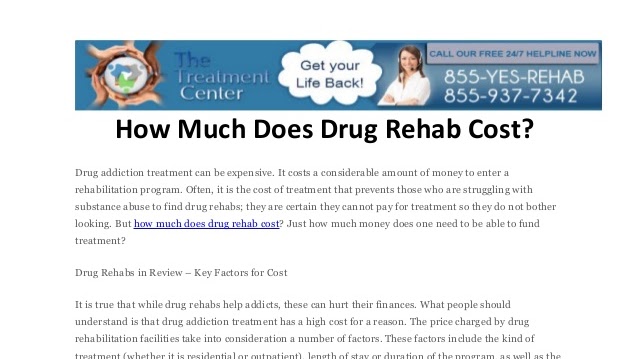Table of ContentsThe National Helpline - Samhsa StatementsAlcoholism And Alcohol Abuse - Helpguide.org Things To Know Before You Get ThisSome Known Questions About Alcohol Addiction: Signs, Complications, And Recovery.Getting My Why Is Alcohol So Addictive? - Michael's House To WorkFacts About What Is Alcohol Addiction? - Pinnacle Treatment Centers Revealed
Even a single night out drinking can have serious cardiovascular implications-- impacting the heart rate, resulting in disruptions in heart rhythm, raising high blood pressure and increasing the risk of suffering a stroke. The long-lasting results of alcohol on the heart aren't good, either. Lots of chronic alcoholics establish a condition referred to as alcoholic cardiomyopathy-- in layperson's terms, a big floppy heart that does not do its task of pumping blood effectively through the body.
Heavy alcohol use, even if its simply the occasional binge, can result in an episode of pancreatitis, which is a harmful inflammatory process in the pancreas that can lead to the spilling of pancreatic enzymes into the abdominal cavity and a subsequent phenomenon understood as 'auto-digestion'. Those suffering from pancreatitis normally experience unbearable discomfort, and typically require emerging healthcare.
Persistent myalgia or muscle pains. Chronic intestinal disruptions resulting in frequent nausea, throwing up and gastric discomfort. Vertigo and syncope-- i.e., dizziness and fainting. Chronic tremors and long-term loss of fine motor coordination. After extended periods of time with heavy use, character changes might manifest. You may notice: Increased tendency toward aggressiveness.

Unprompted mood swings. In time, tolerance to alcohol establishes, whereupon the user will require more and more alcohol to attain wanted outcomes. As the drinker attempts to make up for tolerance, the amount of alcohol consumed might steadily increase. The drinker may not even recognize the upward pattern however, in doing so, significantly increases their risk of alcohol poisoning and death.
The 25-Second Trick For What Is Alcohol Abuse? Risk Factors For Alcohol Dependence
The following stages may be recognized:, or periodic social drinking that might progress to a viewed need to consume to unwind or deal with demanding circumstances. This, in turn, might cause an increased frequency and amount of alcohol consumed. Tolerance to alcohol already begins to establish in this early phase.

User may experience some difficulty remembering what happened when drinking, and some sensations of regret around drinking. or "loss of control" over drinking. Full signs of alcohol addiction appear, including denial, disruptions in work or domesticity, stopped working efforts to get aid, and periods of both refrain from drinking and excessive drinking.
Both physical and psychological health may follow a sharp decrease over the course of the chronic phase. Furthermore, users might experience a substantial interruption, if not an overall disintegration of social interaction and everyday routine-- frequently vanishing from family and friends and having a hard time to maintain jobs, and so on. Intense alcohol withdrawal can result in the development of serious, if not dangerous health problems.
Nausea and throwing up. Generalized muscular trembling. Tachycardia. Hypertension. Anxiety. Agitation. Seizures. Some with a history of heavy drinking may experience the rapid advancement of a condition called delirium tremens - or the DTs - as they withdraw from the impacts of alcohol. This is a threatening turn of events, acknowledged by uncontrollable shaking, high fever, cardiac arrhythmia, profound confusion and hallucinations.
The smart Trick of Alcohol Addiction: Signs, Complications, And Recovery That Nobody is Talking About
Signs normally start as quickly as 8 hours after the last drink, and those struggling with serious alcoholism should prepare in advance to detox under professional medical guidance. Supervision and pharmaceutical intervention (if needed) might last for a few days, as the severe symptoms of acute alcohol withdrawal can possibly appear rather later in many cases (24-72 hours post-abstinence).
If a user is handling signs of anxiety, stress and anxiety, psychosis, or other drug reliance, treatment needs to focus on the precursors to utilize and think about both the mental health/wellness and physical complications noted above. In addition to the previously mentioned physical threats, users who select to detox from alcohol might also deal with a variety of psychological health developments:, users going through detox can experience hallucinations, misconceptions, depression, and anxiety.
All informed, the symptoms from withdrawal can, however generally a user will start to feel some remedy for physical signs in about 72 hours. The length of withdrawal is highly depending on for how long a user was greatly drinking, and everyone metabolizes alcohol in a different way. There is no way to exactly forecast how each individual will withdrawal from alcohol, additional highlighting the requirement for medical supervision on a case-by-case basis.
There are several ways to get help from alcoholism, including treatment, medication, and behavioral intervention. Frequently, the user is one of the last to acknowledge or understand his/her usage is an issue, typically thinking "I have this under control" (what is psychological addiction to alcohol). Once an alcohol usage condition has actually developed, nevertheless, it can be extremely to give up without aid.
How Alcoholism: Causes And Treatment can Save You Time, Stress, and Money.
Alcohol Is one of the most Typically Dealt With Substance Ethanol (alcohol) is abused at a higher rate than any other drug among treatment program attendees, as reported by a 2017 survey from Healing Brands. Nearly 70% of individuals who took the survey went to treatment to get assist with a drinking problem, and a surprising 52.87% of those who reacted reported looking for treatment for a problem with alcohol more than any other compound.
Luckily, alcoholic abuse treatment is just a telephone call away. Talk to our recovery assistance experts at Who Responses? to start pursuing your recovery. Medications that might assist with the treatment of alcoholic abuse and associated symptoms consist of: This drug obstructs the body's capability to metabolize alcohol and causes an extremely undesirable reaction when both are taken in performance.
: Reduces the benefit that originates from drinking by reversing the activation of opiate receptors by endorphins. Assists to bring back the balance of glutamate-GABA signaling in the brain. This medication assists to reduce withdrawal signs such as insomnia, stress and anxiety, and uneasyness. Any medication usage requires the guidance of a medical expert and a prescription, and it should be kept in mind that the most success is discovered when medications are used in conjunction with treatment.
Some courses of property treatment may actually start in a medical facility setting. Users attend a program however are enabled to reside beyond the treatment facility, often going to day-to-day to start and after that following a tiered schedule (5 days a week, 3 days a week, one day a week). Users participate in conferences as often as needed, through groups such as Twelve step programs (aa.org) Other non-12 step assistance groups or recovery programs are offered as well, consisting of SMART Recovery.
The Alcohol Use Disorder (Aud): Medlineplus Ideas
Most recovering alcoholics discover going to support system a long-lasting commitment in https://www.transformationstreatment.center/addiction/stimulants/crack-addiction/ support of their sobriety. Al-Anon (alanon.org), an assistance group for families of addicts, offerings conferences in which liked ones can discover support in their journey loving an addict. Regression will be a temptation for lots of alcohol and drug abusers.
The ability to remain sober in spite of relapse temptations is closely associated to coping skills learned throughout treatment. Ongoing therapy uses the very best healing course for previous alcohol abusers, particularly when combined with support system, as discovering the assistance from others who understand the difficulties and rewards associated with recovery is essential to ongoing abstaining for lots of.
Obtained from http://www.health.harvard.edu/addiction/alcohol-abuse Mixing alcohol with medications. Obtained from http://pubs.niaaa.nih.gov/publications/Medicine/medicine.htm Alcohol withdrawal. (Revised 8 February, 2015). Recovered from https://www.nlm.nih.gov/medlineplus/ency/article/000764.htm Myrick, H. M.D., and Anton, R. F., M.D. (1998 ). Treatment of Alcohol Withdrawal. Alcohol Health & Research Study World, Vol. 22, (Concern 1). Obtained from http://pubs.niaaa.nih.gov/publications/arh22-1/38-43.pdf National Institute on Alcohol Abuse and Alcohol Addiction.